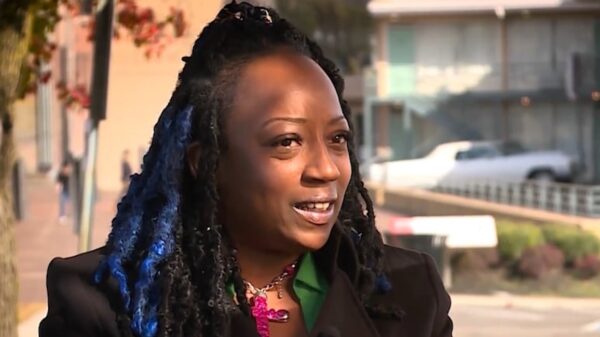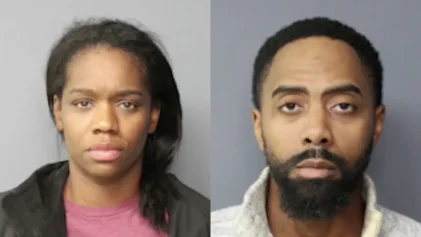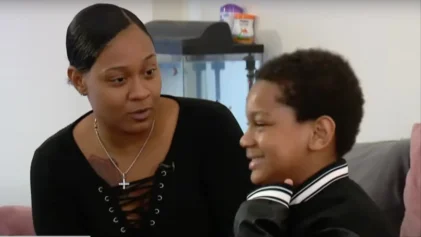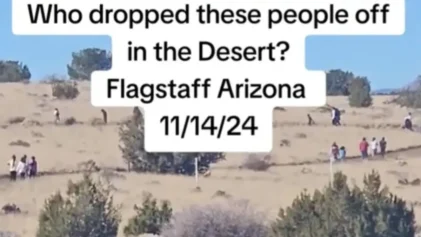Attorneys for the Black Lives Matter Memphis founder sentenced to time in prison for voter fraud said she was persecuted for Tennessee officials’ mistakes.
Authorities said Pamela Moses lost her right to vote because of a 2015 conviction but still registered to vote in 2019.

“This is a vendetta-type prosecution,” Moses’ attorney, Bede Anyanwu, told the New York Times. He said the judge “acted like a bully and slammed her” with the sentence.
Moses said she was never told that she could not vote. The state never removed her name from the voter rolls. However, the Tennessee judge who sentenced Moses to six years and day in prison said Moses knew she was not qualified to vote when she registered.
Moses found out she was ineligible when she decided to run for mayor. Her candidacy was rejected by the Shelby County Election Commission because of her felony conviction. Moses was convicted for evidence tampering, an offense that causes someone to lose their voting rights in Tennessee permanently.
A judge later concluded that she was still on probation. Still believing that her probation was over, Moses sought confirmation from the probation office, where she was told that her probation had ended. They gave Moses a signed, certified document.
Following the advice of election officials, Moses submitted the document with a voter registration form in September 2019, but the next day the probation office sent an email to election officials saying they made an error and Moses was actually still on probation. Moses was then charged with perjury on a registration form.
A 2017 study found that more than 8 percent of the certificates submitted in Tennessee were rejected because the voters were still ineligible. The denial rate was starkly higher among Black men at more than 22 percent.
“I did not falsify anything. All I did was try to get my rights back the way the people at the election commission and the way the clerk did,” Moses told the judge during her sentencing hearing.
Criminal Court Judge Mark Ward, who handed down the sentence, said Moses “tricked” the probation office into giving her the document. In his sentencing order, Ward said Moses has “nothing but contempt for the law and acts as though she believes herself above the law.”
Moses has 16 prior criminal convictions, according to Amy Weirich, Shelby County district attorney. Moses argued that she never committed the 2015 crimes and pleaded guilty just to avoid jail time, The New York Times reported.
Civil rights activists say Moses’ harsh sentence is an example of the racial disparities in the criminal justice system.
“Pamela Moses, a Black woman, has been sentenced to six years in prison because of a voting error. Meanwhile, white individuals who are known to have committed blatant voter fraud have only received probation,” the NAACP’s Legal Defense Fund said in a Feb. 3 tweet. “There are two criminal justice systems in America.”
White Republican voter Donald “Kirk” Hartle was sentenced to probation in Las Vegas after authorities said he falsified his dead wife’s signature and submitted a voter ballot in her name. He was charged with two counts of voter fraud, according to the Reno Gazette Journal.
In a similar case in Ohio, white Republican Edward Snodgrass allegedly submitted a ballot in his father’s name and was sentenced to three years in prison, The Delaware Gazette reported.
Hervis Rogers, a Black man, was charged with voting illegally in Houston while on parole and is now facing up to 40 years in prison, the Times reported.
Democratic attorneys general from Illinois, Massachusetts, Nevada, Oregon, New York, Connecticut and the District of Columbia have categorized Texas’ prosecution of Rogers as voter suppression.
“The unwarranted criminalization of Hervis Rogers’ error is a grave miscarriage of justice. By casting his ballot in the 2020 primary, Hervis Rogers was simply attempting to fulfill his civic duty,” the group of attorneys general said in a statement.
“This prosecution is a clear attempt to intimidate voters, deter participation, and stoke fears of fictitious voter fraud. Texas is disguising voter suppression as election security and disenfranchising millions in the process.
Moses hopes her case will help change the law in the future. “I believe that the law will change where people who are citizens and pay taxes will have the right to vote and if it has to be me to take the lead on that, I’m willing to do that, because it’s important to the future of America, not just Memphis,” Moses told local station WREG.
Moses and her attorneys plan to appeal her sentence.
More news from our partners:
Sashi Brown Becomes Just the Second Black Team President in NFL History With Baltimore Ravens Hire


